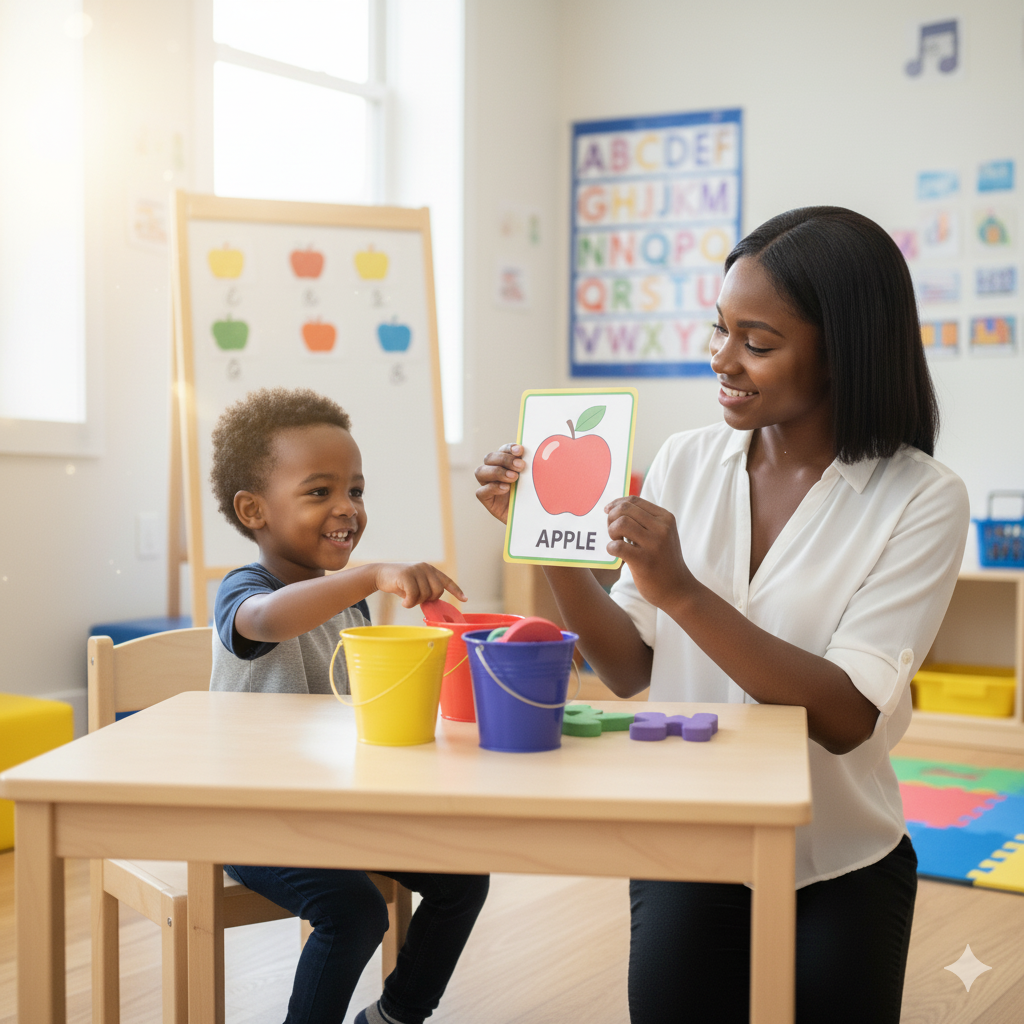Empowering Every Learner to Reach Their Full Potential
At Heartland Therapies, We provide personalized special education for children who have unique learning differences or disabilities that affect their academic, social, or emotional development.
We are a team of qualified trained special education teachers, therapists, and support staff who create personalized education plans that foster children growth and independence.

Special Education for Children
Special Education supports children and adolescents with:
- Learning disabilities (e.g., dyslexia, dyscalculia)
- Intellectual or developmental disabilities
- Autism Spectrum Disorder (ASD)
- Attention Deficit Hyperactivity Disorder (ADHD)
- Speech, language, or communication difficulties
- Emotional or behavioral challenges
- Physical or sensory impairments
Each child is seen as an individual with unique strengths, abilities, and potential.
Our Tools and Techniques
We believe in a child-centered, inclusive, and strengths-based approach to education.
Our programs are designed to help each learner develop academically, socially, and emotionally at their own pace.— such as:
- Individualized Education Plans (IEPs)
- One-on-one or small group instruction
- Speech, occupational, and behavioral therapy support
- Sensory-friendly classrooms and learning spaces
- Integration with mainstream education where possible
- Continuous progress monitoring and family collaboration
Book a Session
The advantage of early intervention is the ability for issues to be worked on while the brain is the most receptive, which means it cuts down therapy time.
Getting started is easy!
Schedule an initial consultation.
Receive a personalized therapy plan.
Begin your journey toward better life

1. What is special education?
Special education is a tailored approach to teaching children with unique learning needs or disabilities.
It involves individualized instruction, specialized teaching strategies, and support services designed to help each child learn, grow, and reach their full potential — academically, socially, and emotionally.
2. How do I know if my child needs special education?
You might notice your child struggling with communication, focus, learning, or social interactions compared to peers.
A comprehensive assessment by a qualified professional — such as a special education teacher, psychologist, or therapist — can help determine whether your child would benefit from special education support.
3. What kinds of challenges does special education support?
Special education helps children with:
Learning difficulties (e.g., dyslexia, dyscalculia)
Autism Spectrum Disorder (ASD)
Attention Deficit Hyperactivity Disorder (ADHD)
Speech and language delays
Intellectual or developmental disabilities
Behavioral or emotional challenges
Physical or sensory impairments
Every program is customized to match each child’s unique strengths and needs.
4. What is an Individualized Education Plan (IEP)?
An Individualized Education Plan (IEP) is a personalized document created for each child in special education.
It outlines the child’s learning goals, support services, teaching strategies, and progress measures.
Parents, teachers, and therapists work together to design and regularly review the IEP to ensure steady progress.
5. What happens during a special education assessment?
An assessment may include:
Observation and interaction with the child
Academic and developmental testing
Speech, language, or occupational evaluations
Parent and teacher input
The results help identify the child’s strengths, challenges, and the best strategies for learning success.
6. Will my child be in a separate classroom?
It depends on your child’s needs.
Some children learn best in inclusive classrooms with support, while others benefit from smaller specialized settings for focused attention.
Our goal is always to find the least restrictive and most supportive environment for your child.
7. Can my child still interact with other children?
Absolutely!
Social interaction is a key part of learning and development.
We encourage inclusive activities, group learning, and play opportunities so that children can develop friendships, communication skills, and confidence.
8. What role do parents play in special education?
Parents are essential partners in their child’s education.
We collaborate with families through:
Regular meetings and progress updates
Home strategies to support learning
Open communication with teachers and therapists
Together, we ensure consistency between home and school for the best outcomes.
9. How is progress measured in special education?
Progress is tracked through regular observation, assessments, and reviews of the child’s IEP goals.
Parents receive frequent updates and are involved in evaluating what’s working and where extra support may be needed.
10. How long will my child need special education services?
Every child’s journey is unique.
Some may need short-term support to build specific skills, while others benefit from ongoing assistance throughout their schooling.
We regularly reassess each child’s progress and adjust support as needed.
11. What qualifications do your special education teachers have?
Our special education teachers are certified professionals trained in child development, learning differences, and specialized instructional methods.
They work closely with speech therapists, occupational therapists, and counselors to provide holistic support.
12. How do I enroll my child in your special education program?
The first step is to book an appointment.
After evaluating your child’s needs, we’ll discuss the best placement, create an individualized plan, and begin the support process.

